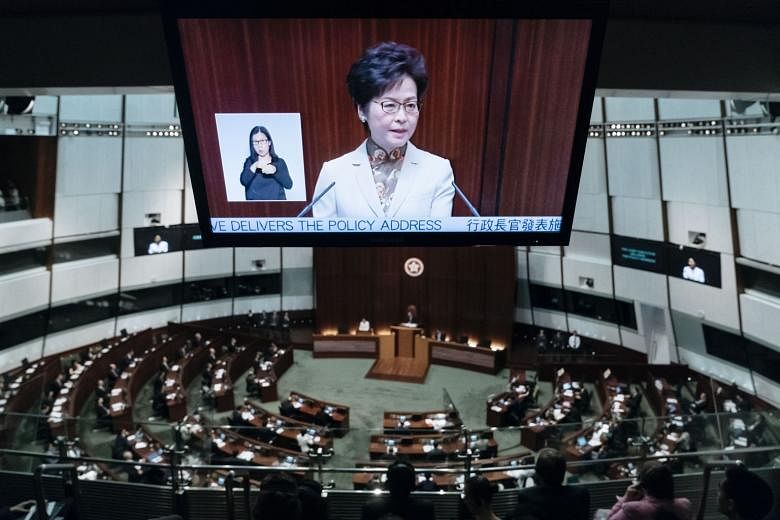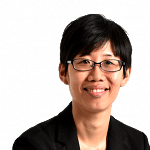Hong Kong chief executive Carrie Lam, in her first policy speech on Wednesday (Oct 11) since taking office in July, pledged billions of dollars to boost emerging sectors in a bid to diversify the territory's economy for the future.
She also unveiled a slew of housing and tax relief measures for the city of 7.3 million people to stay competitive.
"In the face of competition from other economies as well as the rise of protectionism in recent years, Hong Kong is facing increasingly grave challenges. We must develop a high value-added and diversified economy," said the 60-year-old former career civil servant.
The semi-autonomous region is expected to grow at more than 3.5 per cent this year and Mrs Lam saw diversification as "the only solution" for this pace of expansion to be sustained.
She identified innovation and technology and the creative industries as sectors where Hong Kong enjoyed a competitive edge.
"They will not only bolster economic growth, but also create quality employment opportunities for our young people," she said.
Her new government has set a goal to double spending on research and development from the current 0.73 per cent of the gross domestic product (GDP) to 1.5 per cent during her five-year term.
And for Hong Kong to "catch up" in the innovation and technology race, Ms Lam said the government would set aside more than HK$10 billion (S$ 1.73 billion) for university research funding, and provide additional tax cuts to encourage companies to invest in research and development.
She also planned to inject HK$1 billion into the creative industries and invest HK$700 million to transform the financial hub into a smart city.
Economist Andy Kwan Cheuk-chiu told The Straits Times that Hong Kong's economy remained "too traditional", and there was an urgent need to invest heavily to move it towards the new engines of growth especially in terms of innovation and technology.
"We should give a lot of money to the universities to encourage research, train the students and also attract more talents to the city," said Dr Kwan who is the director of ACE Centre for Business and Economic Research.
"It's time to look ahead, otherwise Hong Kong will be left behind and it won't survive," he added.
Ms Lam yesterday announced a tweak to company tax, largely benefiting small businesses. Companies be paying 8.25 per cent in tax on the first HK$2 million of profits, down from the existing flat rate of 16.5 per cent. Profits above HK$2 million will still be subject to the 16.5 per cent tax rate.
Stressing that "meeting the public's housing needs is our top priority", Ms Lam also devoted a significant part of her speech to outlining measures to fight the problem.
As one of the most expensive cities in the world, the income gap in Hong Kong has widened to the highest level in more 40 years fuelling widespread discontent. There have been massive demonstrations in recent years calling for more affordable housing and democracy.
Chinese President Xi Jinping also voiced concerns over runaway housing prices in July when he visited the city to witness the handover celebrations as well as attend Mrs Lam's inauguration ceremony.
Ms Lam yesterday also outlined a string of other "people-oriented" policies, including providing better social welfare and connecting with the young.
She, however, avoided the sensitive topic of political reforms in her 40-minute address as dozens of pro-democracy protesters gathered and scuffles were reported outside the Legislative Council chamber.
But she did remind Hong Kongers in her speech that the "one country, two systems" policy was still the best path for the city and warned against any attempt for independence from the mainland.
Ms Lam said Hong Kong's economy could benefit from the opportunities offered by China's Belt and Road Initiative and the Guangdong-Hong Kong-Macau Bay Area development.
She concluded her speech by calling for unity as she sought to mend widening divisions in society.
"As long as we can achieve consensus, and capitalise on our strengths, the best of Hong Kong is yet to come!" she said.


